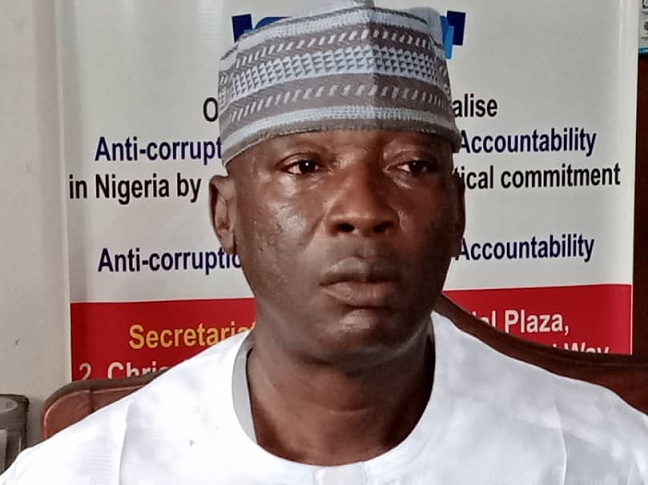Across the globe, youth remain the driving force of any nation. Yet, in Nigeria and many other parts of the world, a troubling trend has emerged: young people especially in Igalaland are prioritizing instant gratification over long-term security. The quest for fleeting pleasures, fueled by a desire for validation, is increasingly shaping the future of many youth. Sadly, they are neglecting one crucial aspect of life: wise investments.
One proverb widely used among the youth in Nigeria, particularly in Igala culture, says: “Eiyi ke ju li, eju kifu jeta”—”The one eyes have seen, let eyes eat it first.” This saying encapsulates the mindset of living solely for the moment, focusing on the present without considering the consequences for the future. It is a mentality that breeds impulsivity—one that places more value on temporary satisfaction than on securing a lasting future.
Yet, this mindset comes at a high cost. The very same youth who indulge in excessive drinking for days, buy rounds for friends, or pursue multiple romantic relationships every week often turn a blind eye to the needs of their families and the importance of investing in their future. In their relentless pursuit of enjoyment, they often forget that financial security doesn’t happen by chance—it requires foresight, planning, and discipline.
This is not just a cultural issue; it is a psychological one. Young people are increasingly caught in a vicious cycle of consumerism and instant gratification, driven by the pressures of social media and the constant bombardment of marketing. They see their peers flaunting the latest gadgets, clothes, and experiences, and they feel compelled to keep up. But what they often fail to realize is that true success does not come from living in the moment; it is built on the foundation of smart decisions made today for a better tomorrow.
Bishop David Oyedepo once remarked, “If you don’t invest in your future, your future will invest in your failure.” His words resonate deeply in a society where many young people continue to waste their time and money on things that don’t add value to their lives. The question is, how long can this cycle of reckless spending and short-term pleasure continue before it catches up with them?
Many youth today lack the financial literacy needed to understand the value of saving, investing, and creating long-term wealth. And while the importance of hard work is often emphasized, the reality is that hard work alone is not enough. It must be coupled with financial wisdom and the discipline to save and invest for the future. Unfortunately, many young people in Nigeria, for example, prefer to indulge in fleeting pleasures rather than set aside funds for savings or investment. They find joy in the present moment without realizing that it is the actions they take today that will determine their tomorrow.
Consider the youth who spends an entire paycheck on clubbing, buying new clothes, or indulging in other temporary pleasures. They justify their actions by saying that they are enjoying their youth, but when it comes time to pay for a sick relative’s hospital bill or provide for their family, they are empty-handed. The harsh reality is that by living only for the moment, they are setting themselves up for a future of financial instability and missed opportunities. A person who spends 500k on a night of enjoyment, yet struggles to find 500 naira the next day to buy garri, epitomizes the consequences of living recklessly. This paradox—where a person spends lavishly one day and scrambles for the smallest amount the next—shows the inevitable consequences of not investing wisely. The truth is, this kind of behavior only digs a deeper hole for tomorrow.
The sad truth is that, while the youth waste their resources on temporary thrills, many others are diligently building wealth. Take, for instance, those who invest in businesses, real estate, or other profitable ventures. Over time, their investments grow, providing them with a secure future. This contrast highlights a critical issue—the youth who are caught up in living for today often find themselves struggling tomorrow, while others are reaping the rewards of their wise decisions.
The problem is not just a lack of knowledge, but a lack of discipline. Many young people fall prey to the mentality that they deserve to enjoy their youth, but what they fail to understand is that true success comes from making sacrifices today for a brighter tomorrow. As the Bible says in Proverbs 21:20, “The wise store up choice food and olive oil, but fools gulp theirs down.” This verse serves as a stark reminder that the wise think ahead and invest for the future, while the foolish waste their resources without considering the consequences.
The parable of the talents in Matthew 25:14-30 also teaches the value of investing wisely. The master in the story rewards those who invest their talents and use them to create more, while the servant who buries his talent in fear is rebuked. This parable highlights the importance of taking risks, using what you have, and investing it wisely. It is a call for the youth to stop burying their talents and to start building for the future.
Yet, despite the clear lessons found in both scripture and the stories of those who have achieved success through wise investment, many youth continue to live recklessly. They spend their earnings on things that provide momentary pleasure but fail to make investments that will yield returns in the future. In the end, they have little to show for their efforts, and their dreams of financial independence remain just that—dreams.
An Elder once said, “It is not enough to pray for wealth; wisdom must guide the hands that build.” His words are a powerful reminder that building wealth requires more than prayer—it requires making wise decisions and taking responsible actions. The youth must learn to discipline themselves and focus on what truly matters: their future.
There are countless examples of successful individuals who rose from humble beginnings because they made the decision to invest in their future. Just as Pastor Chris Oyakhilome once said, “Success is not an accident. It is a deliberate choice.” The youth must make that deliberate choice today. They must choose to invest wisely, save diligently, and plan for a future that is not dictated by the whims of momentary pleasure.
It is time for young people to stop consuming their future. The cycle of “eating tomorrow’s seed” must end. Every penny wasted today is a missed opportunity for tomorrow. It’s time for the youth to realize that the money they spend on temporary pleasures could be used to build a better future, not just for themselves but for their communities and families.
Investing doesn’t have to be a complex endeavour. It can begin with small, consistent steps: saving a portion of each paycheck, learning about investment options, and being disciplined in managing finances. The Bible encourages such prudent behavior. Proverbs 13:11 says, “Dishonest money dwindles away, but whoever gathers money little by little makes it grow.” This verse emphasizes that slow, steady growth is far more valuable than quick, unsustainable gains.
As the youth begin to embrace the wisdom of investment, they will start to see the power of their choices. They will begin to understand that investing in real estate, stocks, or businesses is not just for the wealthy—it’s a path that anyone can take, provided they have the discipline to follow it.
In conclusion, it is time for the youth to wake up. The habits formed today will shape the future of tomorrow. If the youth continue to indulge in temporary pleasures, they will find themselves with nothing when the music stops. But if they begin to invest wisely, to save diligently, and to think long-term, they can build a legacy of wealth and success that will serve not just them, but generations to come.
The world is full of examples of individuals who have built their empires through wise investment. As Benjamin Franklin famously said, “An investment in knowledge always pays the best interest.” The youth must make that investment—an investment in themselves, their future, and the future of their communities. It’s time for them to stop “eating tomorrow’s seed” and start planting today for a prosperous tomorrow.
– Inah Boniface Ocholi writes from Ayah – Igalamela/Odolu LGA, Kogi state.
08152094428 (SMS Only)




